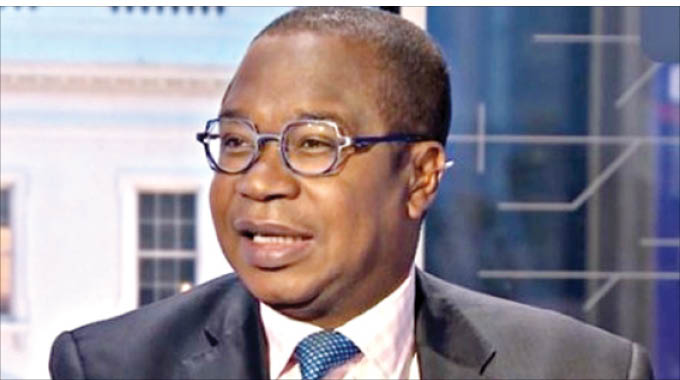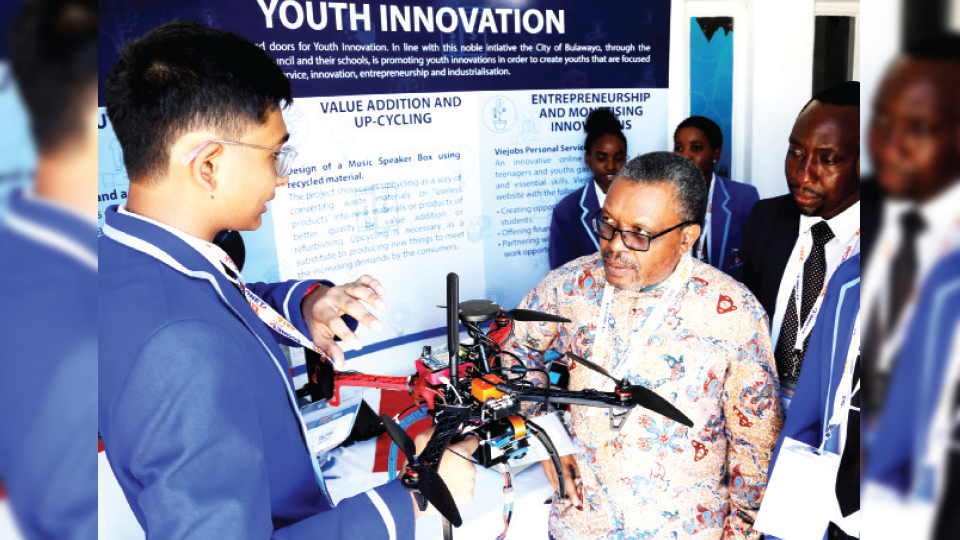Byo faces water-borne diseases outbreak: Auditor-General

Nqobile Tshili, Chronicle Reporter
Auditor-General Mrs Mildred Chiri has said Bulawayo City Council (BCC) is among six local authorities at risk of outbreak of water-borne diseases that could lead to deaths due to failure to manage sewer reticulation systems.
She said Bulawayo has the highest number of residents settling their bills countrywide but warned that council’s failure to effectively address service delivery issues could lead to residents developing a negative attitude towards payment of rates.
The AG’s report follows outbreak of typhoid and dysentery in Luveve suburb and the surrounding areas which killed 13 people, infecting nearly 2 000.
In her 2019 Management of Sewerage System by Urban Local Authorities under the Ministry of Local Government and Public Works report that was tabled in parliament last week, Mrs Chiri said less than one percent of total sewerage infrastructure in local authorities was in good shape.
The Auditor-General assessed six local authorities out of 32 nationwide.
The six local authorities are Bulawayo City Council (BCC), Harare City Council (HCC), Masvingo City Council, Mutare City Council, Chitungwiza Municipality and Marondera Municipality.
Mrs Chiri said if BCC does not timely attend to shortcomings in service delivery issues, it could lose loyal rate payers. “For all the councils the collection of revenue was fluctuating for the period under review with only BCC receiving around 84 percent of the amount billed from sewerage fees, hence it has been more efficient in collecting rates,” she said.
“If Bulawayo, Mutare and Chitungwiza councils, which are collecting revenues above 50 percent of the amount billed continue to delay in attending to complaints raised, residents are likely to develop a negative attitude towards payment of bills and might stop paying bills.”
A Chronicle news crew went around the city and observed sewerage flowing, in some cases within people’s yards, in a number of suburbs.
Some residents have even created a “canal” to allow the sewer to flow from their residential homes.
A Matshobane suburb resident Mr Brave Nyathi said the council was not responding to their reports to attend to the problem.
“We are worried that there could be an outbreak of diseases like what happened in Luveve. This sewer has been flowing for a very long time. I can’t even remember when it burst but council is doing nothing about it. We have children who play outdoors, they might not exercise the same caution as we do. Something needs to be done,” said Mr Nyathi.
Another resident, Mr Tapuma Chuma, who sells gas in the same suburb said the problem was creating an unpleasant working environment.
“I have to endure this smell. There is nothing I can do as this is my spot but it would be better if council could fix this,” said Mr Chuma.
In her report, the Auditor General Mrs Chiri said most local authorities were failing to attend to sewer blockages within the stipulated eight to 24 hours.
The Auditor-General said persistent bursting of sewerage pipes could result in outbreak of fatal diseases.
“Water-borne disease outbreaks will continue to rise with possible increases in deaths. Maintenance and inspections of the sewer reticulation system is still inadequate and this affects the effectiveness of the flowing, collection and treatment of wastewater, with the probable collapse of the whole system which is evidence that urban local authorities do not have the capacity to resuscitate,” said the Auditor-General.
“Due to the failure by the urban local authorities to attend to blockages within the stipulated eight to 24 hours, raw sewage is lost into the environment before reaching the treatment plants thereby contaminating water bodies. The raw sewage flowing on the ground will mix with potable water thereby resulting in water-borne diseases. Furthermore, delays in repair of sewer blockage/chokes will result in backflow of sewage increasing pressure on inlet pipes and joints or weaker points will give in to pressure thereby causing further blockages.”
She expressed concern over the reactive nature in which councils were rehabilitating sewerage infrastructure.
“From the six urban local authorities visited with a total of 3 080km sewer reticulation network only 0,93 percent of the total had been rehabilitated meaning that urban local authorities will continue to be penalised by Environmental Management Agency as they will not meet the standard required for effluent discharged to the environment,” she said.
Mrs Chiri said there is a relation between poor service delivery and low rate payments.
She said Harare has the highest number of sewer pipe bursts.
Mrs Chiri said Masvingo City Council was struggling to maintain sewerage infrastructure due to non-payment of rates.
“The revenue being collected is low therefore maintenance suffers. Residents are failing to pay for the services because of the harsh economic conditions generally prevailing in the country. This poor revenue collection translates to deterioration in the quality of the services offered by council,” said Mrs Chiri.











Comments